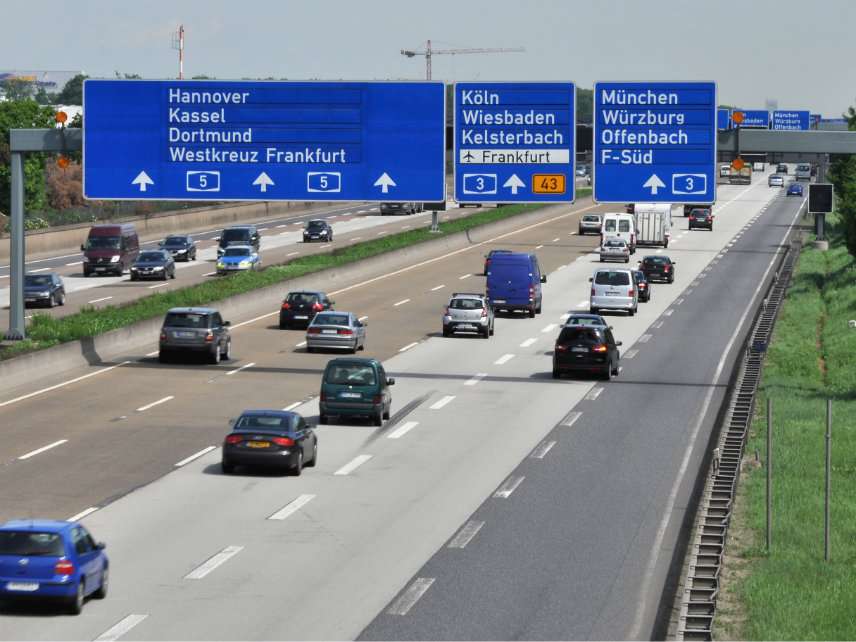New E.U. Rules Would Mandate Technology Preventing Cars From Going Above the Speed Limit
Intelligent Speeding Assistance raises practical and privacy concerns.

The European Union has provisionally agreed on new auto safety rules that will require all cars sold within the E.U.'s 27 member countries to come with a host of new safety features, including intelligent speeding assistance (ISA)—which would prevent cars from going above the speed limit—by 2022.
According to The New York Times, drivers would still be allowed to switch the technology off at their discretion, but the car would have to start with it flipped on.
"Every year, 25,000 people lose their lives on our roads. The vast majority of these accidents are caused by human error," said E.U. Commissioner El?bieta Bie?kowska in a press release announcing the new rules. "With the new advanced safety features that will become mandatory, we can have the same kind of impact as when the safety belts were first introduced."
The E.U.'s goal is laudable, particularly given the death toll cited by Bie?kowska, as well as the fact that the main cause of 30 percent of all fatal accidents on European roads is speeding. Nevertheless, the safety mandates coming out of the E.U. may well be a bit over ambitious.
That's according to the European Automobile Manufacturers Association (ACEA), which argues that intelligent speeding assistance (ISA) is currently too unreliable to be accepted by customers.
The speeding technology would work either by onboard cameras detecting roadside speed limits signs, or by using a digital database of speed limits to check a driver's speed versus what's allowed on a particular road.
Simpler versions of this technology would simply warn drivers when they are going too fast. A more intrusive form of it, which the E.U wants to mandate, would actively prevent a driver from going beyond what is allowed on a particular road.
But as the ACEA notes, there are obstacles to implementation. Road signs are not standardized across Europe. Even if they were, signs are often damaged or covered by foliage. That means onboard cameras might have difficulty seeing and interrupting these visual cues.
There also currently doesn't exist a single database that keeps up-to-date records on all speed limits across all European roads, which would limit the GPS-based version of this technology.
Requiring all cars to be linked up to such a database at all times also raises privacy concerns.
Even if ISA technology did function perfectly all the time and did not implicate any privacy issues, that does not prove it should be mandatory. Every mandated safety feature is naturally going to increase the cost of a car, with those costs getting passed on to consumers.
This economic fact implicates not just the ISA technology, but also a host of other features the E.U. is pushing, including back-up cameras and a requirement that all new cars come with the ability to have breathalyzers installed in ignitions.
The more these safety mandates cost, the more consumers will be priced out of vehicle ownership or have to cut back on other expenses in order to afford a car. That's a real cost that can't be ignored.
The new rules announced this week have only been agreed to in principle by the E.U's Parliament, Commission (executive branch), and Council of Ministers (which consists of elected officials from each country), but still needs to be formally voted on before it can go into effect.
Rent Free is a weekly newsletter from Christian Britschgi on urbanism and the fight for less regulation, more housing, more property rights, and more freedom in America's cities.


Show Comments (93)